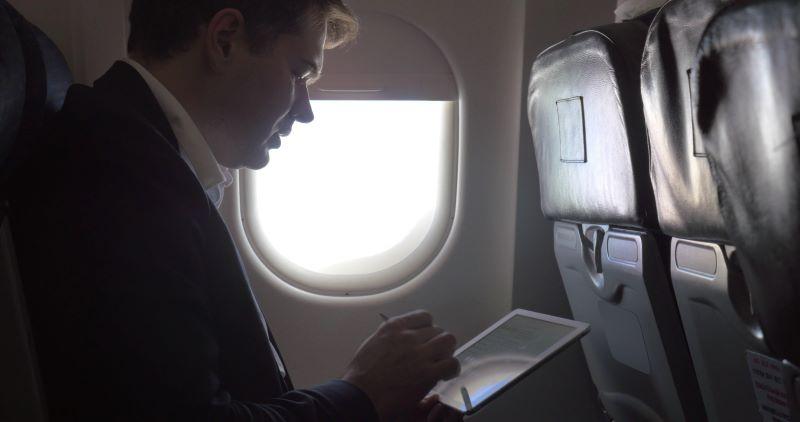
Airline passengers’ perception of the quality of inflight connectivity (IFC) is so poor that seven out of 10 travelers have never even bothered trying to access it.
And of the remaining 30% who have tried it, close to half—43%—describe the experience as frustrating.
The statistics will come as a disappointment to airlines who have invested in IFC in the hope of monetizing the service to passengers.
The statistics are contained in a report delivered June 13 by communications company OneWeb, which is building a constellation of Low Earth Orbit (LEO) satellites to build a high-speed communications network for both air- and ground-based customers.
The OneWeb Connected Passenger Report was commissioned to improve the airline industry’s understanding of what airline passengers demand from their IFC experience and to explore how those expectations meet or contrast with what they have experienced while flying. More than 4,000 people, based in the U.S., UK, UAE and Singapore, responded to the survey.
In further bad news for airlines, a dispiriting 59% of passengers surveyed rated the current quality of IFC between “very poor” to “moderate” on a seven-point scale. Younger “digital native” passengers in the 18-24 year age group were notably less tolerant of current IFC and dismissive of its usability. Older passengers were more accepting of moderate standards and were prepared to class the quality of connection as “good.”
Overall, 60% of passengers surveyed agreed with the proposition that, while the idea of accessing Wi-Fi inflight was highly attractive, current connections were not sufficiently reliable.
Fears of a lack of connectivity in the sky created undue stress before a flight, said respondents, while inconsistency of Wi-Fi service, inaccurate marketing, and usage restrictions were among the main frustrations.
Post-pandemic, passengers are prioritizing quality of life more than ever, the survey found. The state of current IFC services added to the stresses of travel for both business and leisure passengers. The prospect of Wi-Fi disconnection in the sky worried passengers pre-flight.
“The Connected Passenger Report sheds light on the shifting sentiment of passengers who are demanding better and more consistent connectivity,” OneWeb VP mobility Ben Griffin said.
“Despite the significant investment airlines are making in their IFC offering, it is clear the current inflight connectivity experience is not consistently delivering on the needs of today’s connected passenger, with a majority of passengers not even taking the time to connect,” Griffin added. “These results underscore a huge opportunity for airlines to improve their passengers’ experience and loyalty by enhancing their IFC.”

